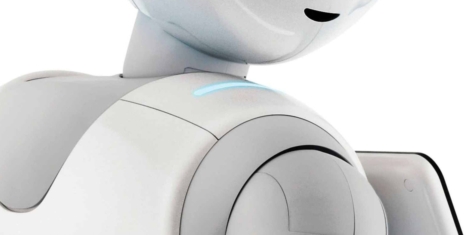October 31, 2018
Business leaders agree that organisations must be digitised to compete
 Over two thirds (67 percent) of business leaders agree their company must become significantly digitalised by 2020 to remain competitive, and they are looking for HR leaders to lead the transformation. This is according to Gartner, Inc whose latest research suggests that CEOs are sharing their focus on digitalisation with their investors; with mentions of “digital” on earnings calls increasing by 20 percent year-over-year since 2010. CEOs are seeking ways to keep costs down while achieving gains in efficiency and productivity, and the HR function is expected to lead digital transformation efforts across their organisations. (more…)
Over two thirds (67 percent) of business leaders agree their company must become significantly digitalised by 2020 to remain competitive, and they are looking for HR leaders to lead the transformation. This is according to Gartner, Inc whose latest research suggests that CEOs are sharing their focus on digitalisation with their investors; with mentions of “digital” on earnings calls increasing by 20 percent year-over-year since 2010. CEOs are seeking ways to keep costs down while achieving gains in efficiency and productivity, and the HR function is expected to lead digital transformation efforts across their organisations. (more…)













 More than half of CEOs (53 percent) admit they can’t find candidates with the necessary skills to help them navigate an increasingly digitalised business landscape a new survey from Robert Half has claimed. These include data analysis and digital skills, as well as softer skills such as resilience, adaptability to change and critical thinking. This means that nearly five million UK SMEs, the equivalent to four out of every five (82 percent) small and medium-sized companies, are struggling to attract the skills they need. As a result, many are being forced to offer salary packages higher than originally expected to recruit the right talent.
More than half of CEOs (53 percent) admit they can’t find candidates with the necessary skills to help them navigate an increasingly digitalised business landscape a new survey from Robert Half has claimed. These include data analysis and digital skills, as well as softer skills such as resilience, adaptability to change and critical thinking. This means that nearly five million UK SMEs, the equivalent to four out of every five (82 percent) small and medium-sized companies, are struggling to attract the skills they need. As a result, many are being forced to offer salary packages higher than originally expected to recruit the right talent. 
 Local authorities, which are on the front line of implementation when it comes to smart, place-based digital initiatives could be helped to deliver positive, sustainable citizen outcomes for their locality with the formation of a Digital Board – a new report claims. Launched at techUK’s
Local authorities, which are on the front line of implementation when it comes to smart, place-based digital initiatives could be helped to deliver positive, sustainable citizen outcomes for their locality with the formation of a Digital Board – a new report claims. Launched at techUK’s 








 As we recently
As we recently 








September 12, 2018
Reinventing jobs for an automated future workplace
by Ravin Jesuthasan • AI, Comment, Technology
(more…)